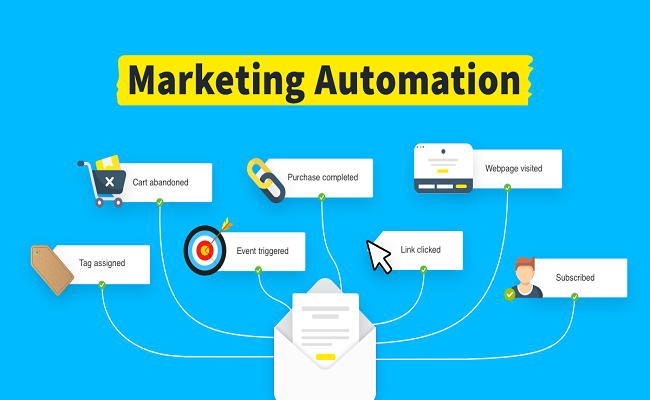In today's fast-paced digital era, businesses are constantly seeking ways to streamline their marketing efforts and maximize their results.
With more and more versatile options like Spectrum cell phone deals, the world is more interconnected than ever. One powerful tool that has emerged in this situation is marketing automation. By leveraging technology and data, marketing automation enables businesses to automate repetitive tasks, personalize communication, and nurture leads more effectively.
This Blog post explore what marketing automation is, how it works, and the benefits it offers to businesses of all sizes.
Understanding Marketing Automation
Marketing automation refers to making the proper use of software and other technologies to automate different marketing tasks and workflows. It involves capturing and analyzing customer data, segmenting audiences, and delivering personalized messages across various channels. The aim is to engage prospects, convert leads into customers, and foster customer loyalty by delivering relevant content at the right time.
Key Components of Marketing Automation
Customer Data Management
Effective marketing automation relies on robust customer data management. This includes gathering and organizing data from various sources, such as website interactions, email marketing, social media, and customer relationship management (CRM) systems. By consolidating this information, businesses gain a holistic view of their customers, allowing for more targeted and personalized marketing campaigns.
Lead Nurturing
Lead nurturing is a crucial aspect of marketing automation. Once leads are captured, they go through a series of automated workflows that deliver relevant content and messages based on their behavior, preferences, and stage in the buyer's journey. By nurturing leads with personalized content, businesses can build stronger relationships, establish trust, and increase the likelihood of conversion.
Lead Scoring and Qualification
Not all leads are created equal, and marketing automation helps businesses identify and prioritize the most promising prospects. Lead scoring assigns points to leads based on their activities and engagement levels, enabling businesses to focus their all required efforts on the most qualified leads. This ensures that sales teams spend their time and utilize their resources on leads with the highest potential for conversion.
Campaign Management
Marketing automation platforms provide comprehensive campaign management capabilities. Marketers can create and schedule multi-channel campaigns, including email marketing, social media, SMS, and more. These platforms allow for easy segmentation of audiences, A/B testing of content, and tracking of campaign performance through key metrics, such as click-through rates, conversion rates, and revenue generated.
How Does Marketing Automation Work?
Behavioral Tracking
Marketing automation platforms use cookies and tracking codes to gather data on customer behavior. By tracking website visits, clicks, downloads, and other interactions, businesses can gain insights into individual preferences and interests. This data forms the basis for personalized communication and targeted marketing efforts.
Personalized Communication
Once customer data is collected and analyzed, marketing automation tools enable businesses to deliver highly personalized messages. By leveraging segmentation and dynamic content capabilities, businesses can tailor communication based on factors such as demographics, interests, past purchases, and engagement history. This level of personalization enhances customer experience and increases the likelihood of engagement and conversion.
Automation Workflows
Automation workflows are the backbone of marketing automation. They enable businesses to design and automate a series of actions based on predefined triggers and rules. For example, when a visitor downloads an eBook, an automated workflow can be triggered to send a follow-up email, add the lead to a specific nurture campaign, and notify the sales team for further action. These workflows save time, ensure consistent follow-up, and allow businesses to scale their marketing efforts efficiently.
Benefits of Marketing Automation
Increased Efficiency
By automating repetitive tasks, marketing automation frees up time and resources for marketers to focus on strategic initiatives. Manual processes such as lead qualification, segmentation, and personalized messaging can be time-consuming and prone to human error. Marketing automation streamlines these processes, allowing marketers to work more efficiently and effectively.
Improved Lead Generation and Conversion
Marketing automation and best dimensions for a landing page can enhance lead generation and conversion rates by nurturing prospects with targeted content. Through personalized communication and timely follow-ups, businesses can move leads through the sales funnel more effectively, ultimately increasing the likelihood of conversion.
Enhanced Customer Experience
Personalized communication and relevant content contribute to an improved customer experience. By delivering the right message to the right person at the right time, businesses would be able to build stronger relationships, increase engagement, and foster customer loyalty.
Conclusion
Marketing automation is a powerful tool that enables businesses to automate marketing tasks, personalize communication, and nurture leads more effectively. By leveraging technology and data, marketing automation enhances efficiency, improves lead generation and conversion rates, and enhances the overall customer experience. As businesses continue to navigate the digital landscape, investing in marketing automation can provide a competitive advantage and drive success in today's fast-paced marketplace.
